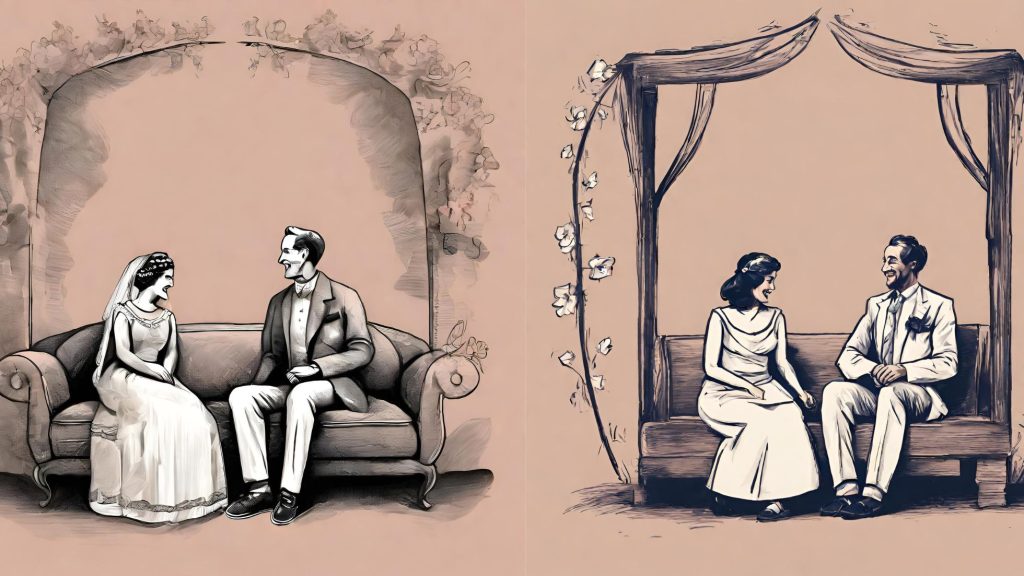The Real Reason for Marriage
Marriage, in its deepest essence, is far more than the sharing of lives, or the legal binding of two individuals—it’s a commitment of permanence, a decision to face the world together, no matter the challenges. This blog delves into the profound nature of marital vows, exploring why true commitment is the real reason for marriage, and how this affects every aspect of the relationship.
The Foundation of Marital Vows
At the heart of every marriage ceremony lie vows—solemn promises made not just in the presence of friends and family but as a sacred act. These vows often include commitments to stick together “for better, for worse, for richer, for poorer, in sickness and in health, until death do us part.” These aren’t just poetic words; they are the boundaries that define the marriage. They serve as a reminder that the relationship is meant to endure, transcending the inevitable challenges and conflicts.
The Impact of Permanence on Arguments
Knowing that there is no easy exit changes the dynamics of how conflicts are handled within a marriage. If every argument could potentially end in separation, both parties are likely to be on constant guard, hesitant to admit faults or show vulnerability. This can lead to a superficial relationship, where deep, meaningful connections are scarce because everyone is too busy protecting themselves.
By contrast, when couples understand that their partnership is for life—that leaving isn’t an option—they are more likely to work through problems instead of walking away. This commitment to resolve issues, not escape them, is what strengthens the bond between partners.
Freedom vs. Stability
Some argue that keeping the possibility of divorce on the table provides a sense of freedom in the marriage. However, this type of “freedom” can often lead to instability, making it difficult to plan a future together, invest in joint endeavors, or build a family legacy. The freedom to leave at any moment is a double-edged sword—it not only liberates but also undermines the security that nurtures love and deep mutual understanding.
The Sacred Nature of Marriage
Marriage is designed to be a lifetime commitment, a “voluntary enslavement” as some might provocatively describe it, but more aptly, it is the ultimate expression of responsibility and dedication to another human being. This commitment is what makes it possible for couples to grow, knowing they have a partner who is in it for the long haul.

Facing Challenges Together
With the assurance of permanence, couples can focus on solving problems together rather than contemplating the exit routes. This “stuck with you” mindset isn’t about resignation to a fate but a determination to make the partnership work. It encourages a deeper level of communication, problem-solving, and emotional intimacy, allowing both partners to grow and thrive within the safety of a committed relationship.
Continuity and Legacy
A stable, lasting marriage provides a continuity of narrative for the lives involved, including children. It offers a foundation upon which long-term plans can be built, and life stories can unfold. This continuity is essential not only for personal and emotional growth but for creating a familial legacy that stands the test of time.
Conclusion
Marriage is a covenant that goes beyond the everyday love and companionship touted by modern narratives. It is a profound commitment to face life together, through all its trials and triumphs. The real reason for marriage, therefore, is to provide a stable, secure foundation from which both individuals can grow, not just side by side, but together, crafting a shared story that is richer and more meaningful than any single narrative could ever be.

